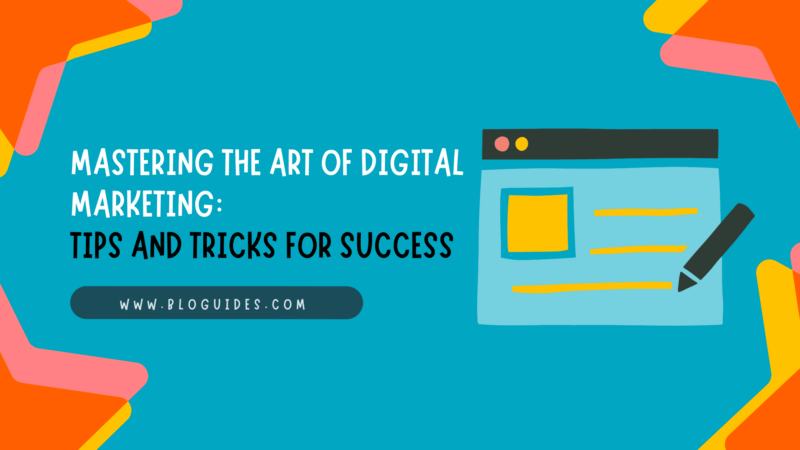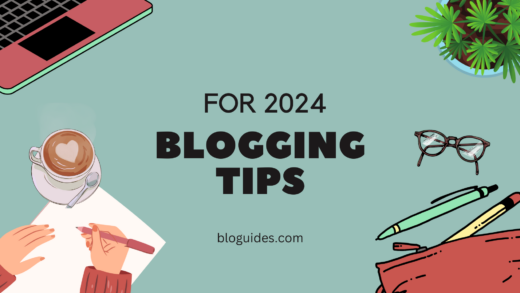Mastering the Art of Digital Marketing: Tips and Tricks for Success

Digital marketing is essential in today’s fast-paced, technology-driven world. Mastering the art of digital marketing can help you elevate your business, reach new customers, and achieve tremendous success. This article will explore tips and tricks to help you become a digital marketing pro.
Understanding Digital Marketing
A. Definition
Digital marketing is using online platforms and channels to promote products or services. It encompasses various strategies, such as search engine optimization (SEO), content marketing, email marketing, and social media marketing.
B. Importance
Digital marketing is vital for businesses to thrive in the competitive online landscape. It allows companies to reach a wider audience, engage with customers, and build brand awareness. Moreover, it is cost-effective and provides measurable results.
Strategy Development
A. Setting Goals
To succeed in digital marketing, you must set clear, achievable goals. These objectives should be specific, measurable, achievable, relevant, and time-bound (SMART). Clear objectives will help guide your marketing efforts and enable you to measure your success.
B. Identifying Target Audience
Understanding your target audience is vital for creating effective marketing strategies. Define your ideal customer by considering demographics, location, interests, and behavior patterns. This information will assist you in tailoring your content and messaging to resonate with your audience.
C. Analyzing Competitors
Analyzing your opponents can provide helpful insights into the digital marketing landscape within your industry. Identify their strengths and weaknesses and use this information to guide your strategy, differentiate your brand, and gain a competitive edge.
SEO Optimization
A. Keyword Research
Keywords are the foundation of SEO. Conduct keyword research to pinpoint your target audience’s terms when searching for your products or services. Utilize tools like Google Keyword Planner or Ahrefs to discover relevant, high-traffic keywords with low competition.
B. On-Page SEO
On-page SEO involves optimizing your website’s content and HTML source code to rank higher on search engines. Some essential on-page SEO factors include title tags, meta descriptions, header tags, and image optimization. Ensure your content is well-structured, easy to read, and incorporates your target keywords naturally.
C. Off-Page SEO
Off-page SEO focuses on improving your website’s authority and reputation through external factors like backlinks, social media, and guest blogging. Building high-quality backlinks from reputable sources can significantly impact your search engine rankings. Additionally, engage with your audience on social media platforms and collaborate with industry influencers to enhance your online presence.
Content Marketing
A. Blogging
Blogging is a powerful content marketing tool that allows you to share valuable information, showcase your expertise, and engage with your audience. Publish well-researched, informative, and engaging blog posts consistently to establish your brand as an industry authority and improve SEO.
B. Social Media
Social media platforms like Facebook, Twitter, Instagram, and LinkedIn provide an excellent opportunity to connect with your audience, share content, and drive traffic to your website. Create and share captivating content tailored to each platform, and engage with your followers to build a loyal community.
C. Video Marketing
Videos are highly engaging and shareable, making them a valuable content marketing tool. Create and share informative, entertaining, and visually appealing videos on platforms like YouTube and Vimeo. Optimize your video titles, descriptions, and tags to improve visibility and reach a broader audience.
Performance Analysis
A. Analytics Tools
Monitoring your digital marketing performance is crucial to determine your strategies’ effectiveness and identifying improvement areas. Use analytics tools like Google Analytics, Google Search Console, and social media analytics to track and measure your performance.
B. Adapting Strategy
Digital marketing is an ever-evolving landscape. Continuously analyze your performance, and be prepared to adapt your strategies based on your findings. Stay informed on industry trends and best practices to ensure your digital marketing efforts remain relevant and practical.
Conclusion
Mastering the art of digital marketing is a continuing process that requires consistent learning and adaptation. By minding these tips and tricks, you can develop and implement successful digital marketing strategies that drive growth and success for your business.



